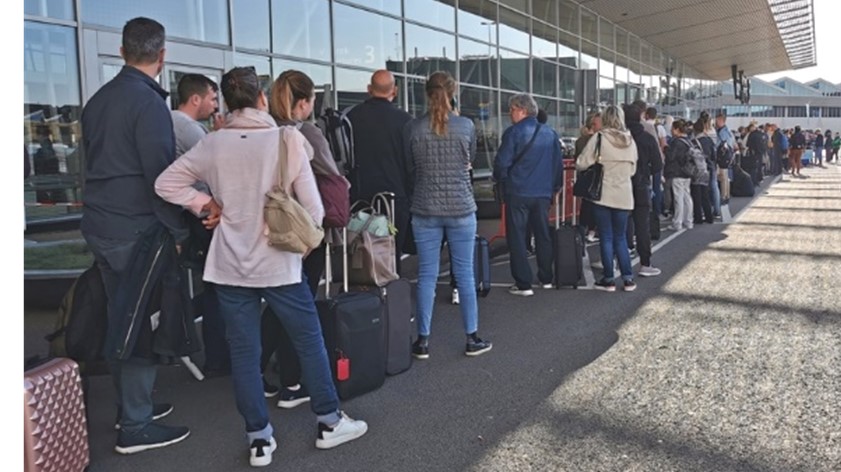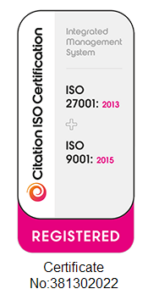With travelling to events become more challenging, event organisers must be ready to rethink their approach to hybrid.
Many organisations are wondering what is the shape of things to come when delivering an event?
In recent months there have been a lot of live shows and events as companies use up pre-COVID budgets and pre-contracted venue bookings in a use-it-or-lose-it trend. But despite getting back to live, the demise of either virtual or hybrid seems to be unlikely. We are still facing uncertainty around what happens next with COVID and now we can add to that worries around flight cancellations and queues at airports, rising fuel prices and general inflation, meeting sustainability policies, CSR and more recently wars and fire damage. Many organisations are wondering what’s the shape of things to come when it comes to events?
We have all learned the values of virtual in the past two years, and so more and more organisations are hard questioning the value of running big live events because of the commitment to costs and worries around attendance, cancellations, COVID infections and so on.
People from China can’t fly directly to Europe and must go via a closed network of approved countries
We have considered whether a combination of resource constraints and travel barriers are likely to make large live events less common and, without combining these types of events with a quality hybrid option – are they less likely to be successful? Chaos at airports, uncertainty about mask rules on flights, and even the difficulty for some delegates to get to a destination at all, mean travel is far from simple now. For example, people from China can’t fly directly to Europe at the moment, they must go via a closed network of approved countries, which makes getting to an event in Europe prohibitively expensive for Chinese delegates and speakers.
More people are thinking carefully about their carbon footprint before unnecessarytravel.
Then there are the health concerns putting people off travelling for a meeting. After arecent IMEX meeting, reports came back that a number of people had tested positive for COVID, which is likely to put at least some people off attending in person again. It seems to be rampant at the moment.
On top of all these issues, more people and businesses are thinking carefully about their carbon footprint before unnecessary travel.
There’s a lot of uncertainty around being able to deliver an event
With all these issues to deal with, there’s a world-wide challenge around resourcing issues, and getting a crew to support your event can be difficult. We’re frequently seeing messages on the Delegate Wranglers’ Facebook page saying,“I’ve been let down by a pre-arranged crew who can’t supply the event. Does anyone know anybody?” There’s just so much uncertainty around actually being able to deliver an event, bring speakers, suppliers or equipment or event to besure that delegates will be able to get to the sessions.
We’re working with an organisation on a series from Ireland where there will be atleast one hub of people meeting face-to-face
We’re starting to see more organisations think about a blend of events and meetings. We’re working with an organisation on a series from Ireland where there will beat least one hub of people meeting face-to-face, with the sessions streamed out to people who will watch virtually.
After two years of working from home and attending events virtually, there is a comfort level with connecting via Zoom or other platforms. People have established a pattern behaviour, which is to join meetings online from the comfort of their home – albeit with the variability of the quality of delivery from poorly run sessions to positive, engaging meetings that encourage people to join future sessions.
Event organisers are expected to put thought into their sessions, be more creative and keep audiences entertained and engaged.
With experience there is less tolerance for poor-quality virtual meetings, so,organisations must lift their game, or struggle to attract, engage and retain audiences. Nowadays, event organisers must put exceptional thought into their sessions, be consistently more creative and keep audience sentertained and engaged. We’ve done a bunch of events for one client where we took the organiser’s PowerPoint and put it to music and sequenced that. We’re now doing more video and devising PowerPoints with more dynamic features with avatars and animations – because the client wants to keep everything fresh with innovative ideas. So that will be the challenge moving forward with Hybrid evens in particular – how to constantly innovate, devise new ideas, new formats and fresh approaches that work across a blended event. The other will be to deliver an equivalent,if not exactly similar experience for virtual audiences – but the right format and length to people interested in these hybrid meetings.
In times of crisis or restriction we are often less complacent, more proactive, more creative and ready to think outside the box – a needs must approach perhaps –but always enjoyable. And there’s no doubt that in the next 12 months at least,travel restrictions and travel reticence will see the utilisation of hybrid events as effectively covering off the communication bases. The secret to their success will be to ensure the virtual portion of the event is relevant, engaging, at a reasonable time of day and is as good a use of delegates’ time, as a attending a live event would be.
Leslie Robertson ist he Founder of Open Audience, an audience engagement consultancy that specialises in making life sciences meetings more engaging with more positive,successful outcomes – whether in-person or in the virtual space. The OpenAudience team helps to strategise and prepare pre- and post-meeting as well asproviding real-time support and guidance during the meeting. Open Audience also offers customisable, multilingual engagement platforms that include interactive polling, surveys, and ideas exchange.

